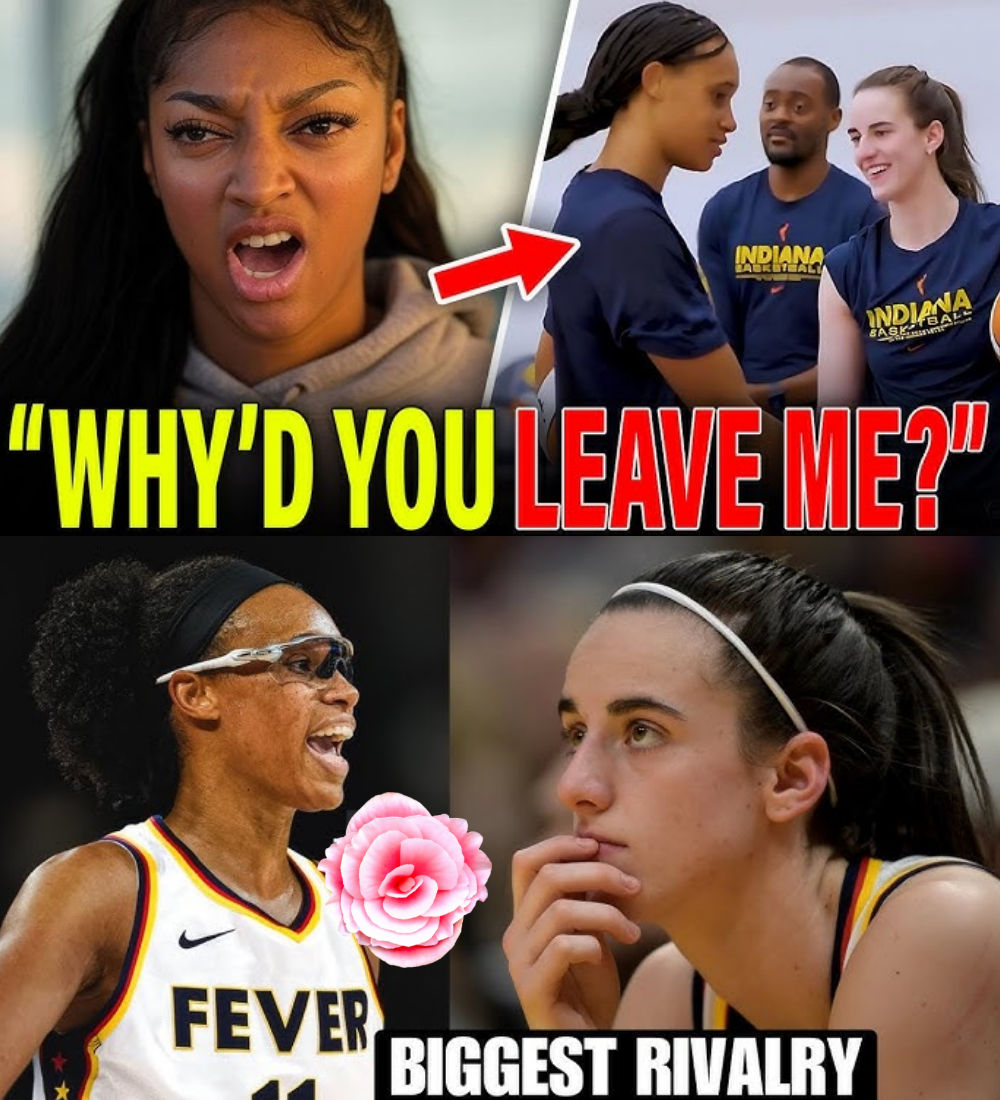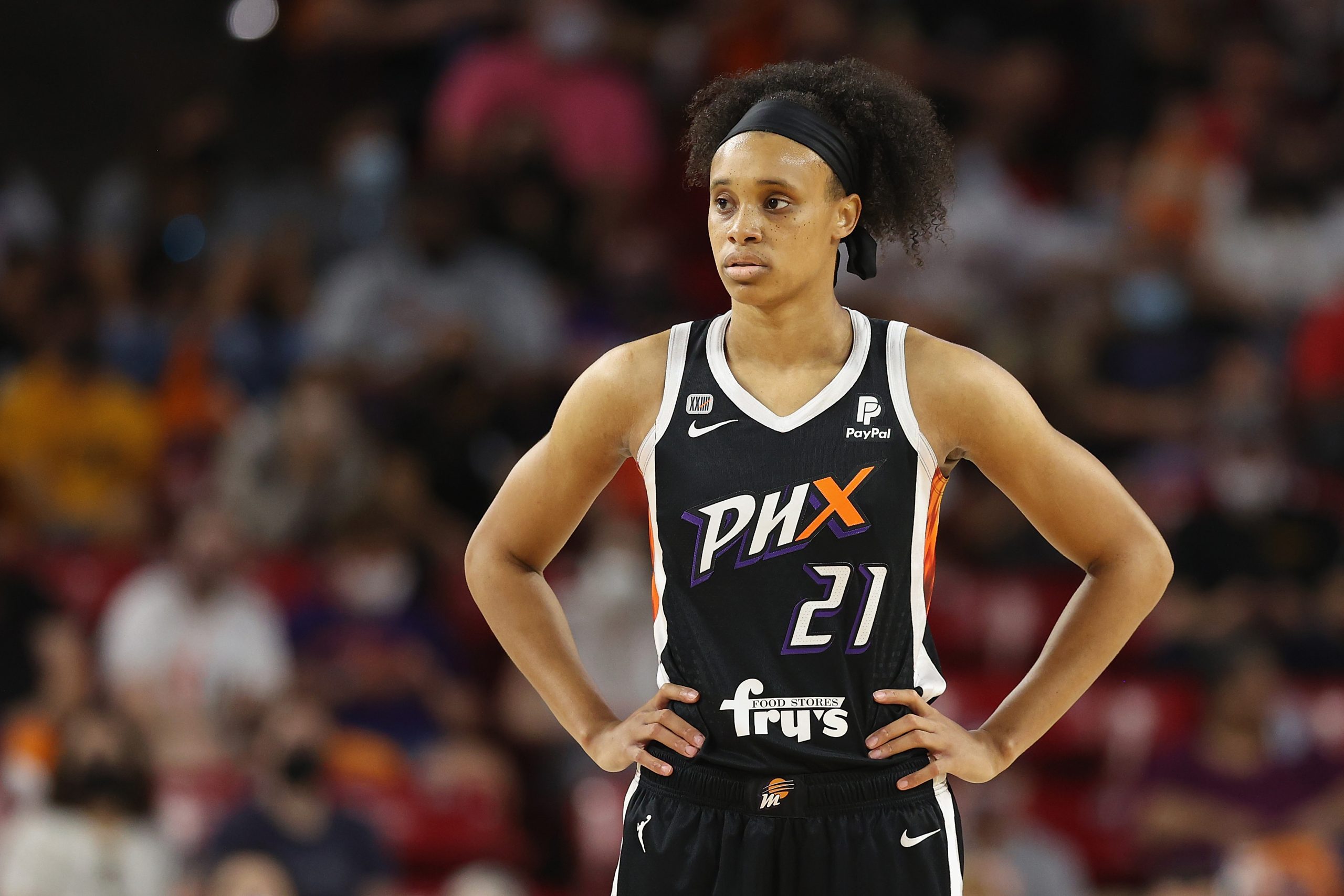
Brianna Turner didn’t just join a new team—she made a statement. The former teammate of Angel Reese, who once shared court chemistry and postgame celebrations with the self-proclaimed “Bayou Barbie,” has now aligned herself with a new energy, new leadership, and a completely different vibe. The moment footage surfaced of Turner training alongside Caitlin Clark in Indiana, the narrative shifted—and for Angel Reese, it couldn’t have been more painful.
The video, showing Turner and Clark working on screen-and-roll drills under the watchful eye of Fever staff, instantly went viral. What seemed like a routine preseason training clip quickly snowballed into a symbolic moment in the WNBA’s growing culture war: professionalism versus performance, leadership versus noise, humility versus ego.
Reese, who has built her personal brand on attitude, swagger, and viral moments, has frequently placed herself in opposition to Clark—whether intentionally or through passive-aggressive media moments and social media shade. While Clark remained mostly silent, letting her play speak volumes, Reese cultivated an image of rebellion, as if the world owed her something and every game was her chance to cash in.
But Turner choosing Clark tells a much louder story than anything said online. This wasn’t just a free-agent signing. This was a career move with clear intent. Turner—a respected veteran and one of the most consistent defenders in the league—opted to train with the player many of her peers still side-eye with skepticism. And she did so without apology.

It didn’t take long for speculation to begin. Was there tension behind the scenes between Turner and Reese? Had Turner grown tired of the distractions and drama? Had she simply decided it was time to put winning first? Whatever the answer, her choice sent ripples through the league—and Reese’s camp reportedly didn’t take it lightly.
Fans noticed. Social media exploded with theories, jokes, and memes. One tweet summed it up best: “Brianna Turner didn’t just change teams. She leveled up.” Others pointed out how the atmosphere in Indiana seems drastically different from that in Chicago, where Reese’s larger-than-life presence often overshadows the team’s actual performance.
To be fair, Reese’s talent is undeniable. Her rebounding ability is elite. Her physicality is unmatched. But what she brings in intensity, she sometimes lacks in composure and team cohesion. Theatrical reactions, public callouts, and an air of entitlement have made her a polarizing figure in a league that is rapidly evolving—largely thanks to the arrival of players like Clark.
Clark, by contrast, is the quiet force changing everything. Her debut year already broke records for attendance, viewership, and merchandise sales. She isn’t just the most watched rookie in WNBA history—she’s the engine driving the league’s meteoric rise in national attention. Her presence alone has transformed Indiana into a legitimate championship contender, with top-tier veterans lining up to join her.
And now, Turner is part of that machine.
In interviews following her arrival in Indiana, Turner was all class. She praised Clark’s skills, expressed excitement about joining a young team with massive potential, and emphasized that she’s focused on winning. Not once did she take a shot at her former teammates. She didn’t need to. The silence said everything.

Her quote about choosing professionalism over chaos stood out: “I think the front office really had a vision in place, and I felt I could complement that vision. The Fever is a place to win, and I want to win.” Subtle, but unmistakable.
Meanwhile, Reese, who once seemed untouchable with her NIL success and social media clout, now looks increasingly isolated. Her circle is shrinking. Her reputation is shifting from bold to burdensome. And her most talented former teammate just chose to build with the player she’s long framed as her rival.
If Reese was hoping to cement herself as the future face of the league, that spotlight is fading fast. Her leadership style—more centered on defiance than development—is starting to wear thin. What was once seen as confidence now looks a lot more like ego. And ego, in the team-oriented culture of the WNBA, doesn’t win championships.
Turner’s move also underscores a changing attitude within the league itself. Veterans are aligning with Clark not just because she’s a star, but because she brings structure. Her commitment to the game is infectious. Her work ethic is admired. Her humility is refreshing. And players like Turner want to be part of something that isn’t just trending—they want to be part of something lasting.
As for Clark, she continues to lead by example. She’s not responding to shade. She’s not fanning any feuds. She’s in the gym, improving her game, building relationships, and earning the respect of her peers one possession at a time.
If the WNBA is a stage, then Angel Reese once positioned herself as the headliner. But these days, it feels more like she’s outside the building, watching as the real stars take the spotlight.
And perhaps the most poetic part? Turner didn’t need a microphone to make her decision loud. All it took was lacing up her shoes, stepping into the gym, and choosing a team that’s building something bigger than ego.
The league is moving forward. The question is—will Angel Reese catch up or be left behind?
Because in the WNBA, it’s not about who talks the loudest. It’s about who shows up when the cameras are off, who earns the trust of their teammates, and who’s willing to put the team first. Right now, that’s Caitlin Clark and Brianna Turner.
And as the Indiana Fever continue to rise, one thing is clear: players are gravitating toward greatness. Not noise. Not drama. Greatness.


